-
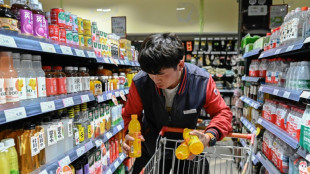 China tells Trump to 'stop threatening and blackmailing'
China tells Trump to 'stop threatening and blackmailing'
-
Iran FM says uranium enrichment 'non-negotiable' after Trump envoy urged halt
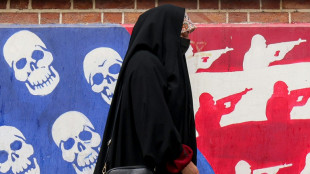
-
 Automakers hold their breath on Trump's erratic US tariffs
Automakers hold their breath on Trump's erratic US tariffs
-
Cycling fan admits throwing bottle at Van der Poel was 'stupid'

-
 Troubled Red Bull search for path back to fast lane
Troubled Red Bull search for path back to fast lane
-
China's forecast-beating growth belies storm clouds ahead: analysts

-
 ASML CEO sees growing economic 'uncertainty' from tariffs
ASML CEO sees growing economic 'uncertainty' from tariffs
-
Heineken beer sales dip, tariffs add to uncertainty
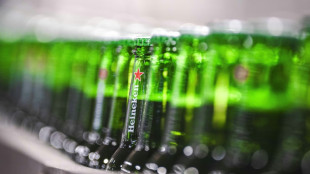
-
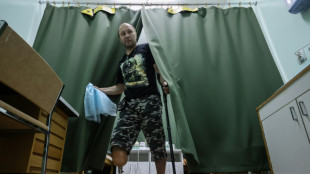 Rehab centre for Russian veterans from Ukraine fills up
Rehab centre for Russian veterans from Ukraine fills up
-
Dutch flower industry grasps thorny pesticide issue

-
 Solar boom counters power shortages in Niger
Solar boom counters power shortages in Niger
-
Malnourished children in Afghanistan at 'high risk of dying' without US aid
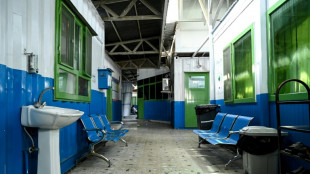
-
 Skating comeback queen Liu says she can get even better for Olympics
Skating comeback queen Liu says she can get even better for Olympics
-
'Let's rock': world music icon Youssou N'Dour back on the road

-
 Mackerel and missiles: EU-UK defence deal snags on fish
Mackerel and missiles: EU-UK defence deal snags on fish
-
Istanbul's Hagia Sophia prepares for next big quake

-
 'Magician' Chahal casts spell with IPL heroics
'Magician' Chahal casts spell with IPL heroics
-
WHO countries strike landmark agreement on tackling future pandemics

-
 Kerr salutes Harvard defiance over Trump after Warriors win
Kerr salutes Harvard defiance over Trump after Warriors win
-
Canada party leaders hold high-stakes debate two weeks from vote
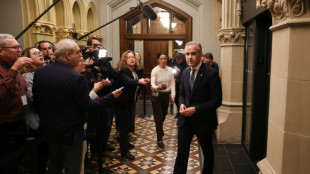
-
 As war grinds on, Ukraine's seniors suffer
As war grinds on, Ukraine's seniors suffer
-
ASML CEO sees 'increased macro uncertainty' from tariffs

-
 Pope leaves faithful guessing over Easter appearances
Pope leaves faithful guessing over Easter appearances
-
Butler, 'Batman' Curry shine as Warriors down Grizzlies to reach playoffs

-
 Skating 'Quad God' Malinin ready for Olympic favourite tag
Skating 'Quad God' Malinin ready for Olympic favourite tag
-
Toppmoeller has ascendant Frankfurt challenging their limits

-
 Cambodia's Chinese casino city bets big on Beijing
Cambodia's Chinese casino city bets big on Beijing
-
Vespa love affair: Indonesians turn vintage scooters electric

-
 Europe seeks to break its US tech addiction
Europe seeks to break its US tech addiction
-
Long-abandoned Welsh mine revived as gold prices soar
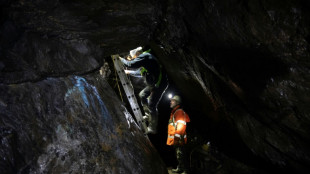
-
 UK's top court to rule on how to define a 'woman'
UK's top court to rule on how to define a 'woman'
-
WHO countries reach landmark agreement on tackling future pandemics

-
 Stocks struggle again as Nvidia chip curb warning pops calm
Stocks struggle again as Nvidia chip curb warning pops calm
-
China's economy beats forecasts ahead of Trump's 'Liberation Day'

-
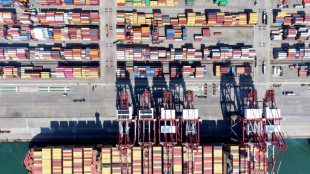 China's economy beat forecasts in first quarter ahead of Trump's 'Liberation Day'
China's economy beat forecasts in first quarter ahead of Trump's 'Liberation Day'
-
Trump orders critical minerals probe that may bring new tariffs

-
 Onana faces date with destiny as Man Utd chase Lyon win
Onana faces date with destiny as Man Utd chase Lyon win
-
Lessons in horror with Cambodia's Khmer Rouge tribunal

-
 Pandemic agreement: key points
Pandemic agreement: key points
-
Paramilitaries declare rival government as Sudan war hits two-year mark

-
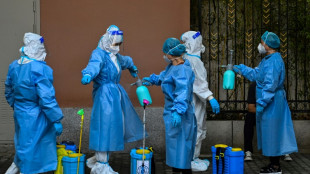 Landmark agreement reached at WHO over tackling future pandemics
Landmark agreement reached at WHO over tackling future pandemics
-
'La bolita,' Cuban lottery offering hope in tough times

-
 'Toxic beauty': Rise of 'looksmaxxing' influencers
'Toxic beauty': Rise of 'looksmaxxing' influencers
-
Facebook added 'value' to Instagram, Zuckerberg tells antitrust trial

-
 Vision Marine and STERK Achieve Internal Hull Optimization for E-Motion(TM) Electric Propulsion Integration
Vision Marine and STERK Achieve Internal Hull Optimization for E-Motion(TM) Electric Propulsion Integration
-
Beyond Creatinine: First Real-World Evidence Highlights Proenkephalin A 119–159 (penKid) as a Valuable Kidney Function Biomarker

-
 Helium One Global Ltd Announces Jackson-27 Spud at Galactica Project
Helium One Global Ltd Announces Jackson-27 Spud at Galactica Project
-
Tocvan Core Drilling Extends Main Zone, 70 meters South Returns 7.2 g/t Gold and 80 g/t Silver Over 2.6 meters within 46.9 meters of 0.5 g/t Gold

-
 Supplement Manufacturing Partner, Inc. Issues Recall on Dorado Nutrition Brand Spermidine Supplement 10mg Vegetable Capsules (Spermidine 3HCL) Due To Undeclared Wheat Allergen
Supplement Manufacturing Partner, Inc. Issues Recall on Dorado Nutrition Brand Spermidine Supplement 10mg Vegetable Capsules (Spermidine 3HCL) Due To Undeclared Wheat Allergen
-
Trump signs order aimed at lowering drug prices
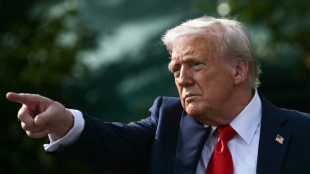
Next Generation EU a scam?
The Next Generation EU (NGEU) fund, an unprecedented European Union economic recovery package, was launched in 2020 to help member states recover from the economic and social impact of the COVID 19 pandemic. With a volume of €750 billion, divided into grants and loans, NGEU aims to make Europe greener, more digital and more resilient (European Commission, Recovery plan for Europe). However, the implementation and effectiveness of the programme have been met with controversy and criticism, leading some to call it the EU's ‘biggest scam’. This report analyses the reasons for this criticism, based on fraud cases, political tensions and economic doubts.
Fraud and misuse of funds
A key point of criticism is the high number of fraud cases affecting the programme. In April 2024, 22 people were arrested in Italy, Austria, Romania and Slovakia on charges of embezzling €600 million from the Italian National Recovery and Resilience Plan (NRRP), which is part of NGEU. The criminals used a network of accountants, service providers and notaries to fraudulently obtain non-repayable funds and transfer the money abroad.
Another case concerns the procurement of power generators for Ukraine, which was managed by the Polish government agency for strategic reserves (RARS). The European Anti-Fraud Office (OLAF) recommended the recovery of over €91 million due to serious irregularities, including inflated prices and a lack of competition (European Commission, OLAF completes investigation into suspected serious irregularities). These cases are not isolated: in 2022, OLAF recorded a 7% increase in fraud cases, with irregularities worth €1.77 billion. At the end of 2024, the European Public Prosecutor's Office (EPPO) was handling 311 active cases with an estimated €2.8 billion in damages to the EU budget, mostly related to NGEU (Balkan Insight, EU Fraud Keeps Rising as Prosecutors Investigate 38% More Cases in 2024).
Political controversies and delays
Besides the fraud cases, there were political tensions that delayed the implementation of NGEU. Poland and Hungary initially blocked the adoption of the fund due to concerns about the rule of law conditions. This led to delays in the disbursement of funds and political tensions within the EU (Wikipedia, Next Generation EU). Article 7 proceedings were opened against both countries, but their mutual support prevented sanctions, complicating the implementation of the fund (Wikipedia, Next Generation EU). These controversies show that NGEU was not only a technical financial instrument but also a political battleground, undermining confidence in the programme.
Scepticism from economists and political actors
Some economists and political actors express scepticism about the effectiveness and purpose of NGEU. A study from Comparative European Politics (2022) argues that the allocation of funds was based on existing economic and political vulnerabilities rather than the direct consequences of the pandemic. Countries with strong Euroscepticism and structural problems received the most funding per capita, regardless of the severity of the health crisis (Comparative European Politics, Voices from the past: economic and political vulnerabilities in the making of next generation EU). This could indicate that NGEU is more of a tool for stabilising weak economies, which some may see as a misuse of funds.
In Italy, the main recipient, there are doubts about the government's ability to use the funds efficiently. Although the government is celebrating the receipt of the fifth tranche of NGEU, the challenge remains of actually spending the funds and implementing the planned projects (Euractiv, Italy and the challenge of spending European funds). These difficulties underline the concern that NGEU may not deliver the promised results.

Россия: Здоровье Навального в опасности

Россия: Вагнеровцев не хотят хоронить!

Вам пришла повестка на Госуслугах. Что делать?

Россия: Людмила Путин зарабатывала на долгах

Ukraine: Bakhmut at the centre of the fight against Russia's terror?

Arms imports to Europe have risen sharply, new report finds

Russia with a big mouth but nothing behind it!

The EU and the energy crisis
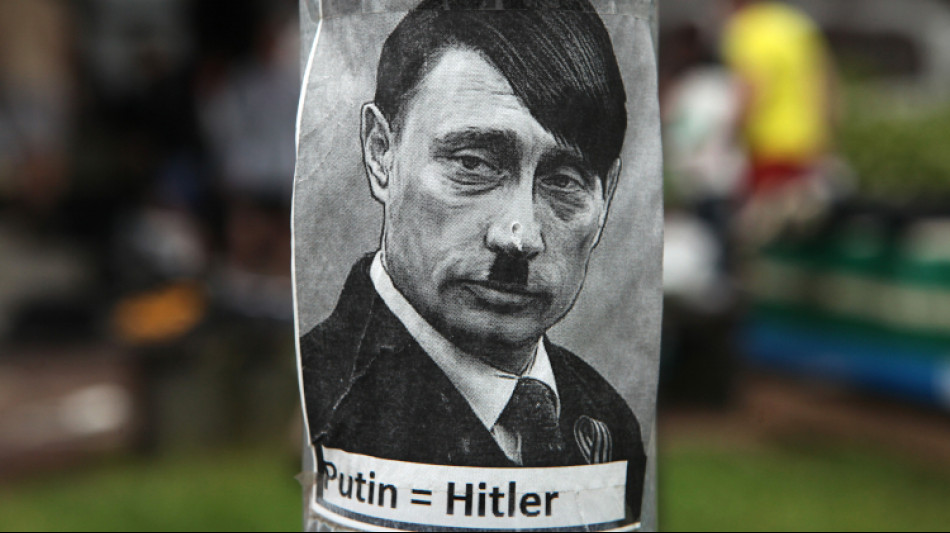
Russian scum beats own soldiers
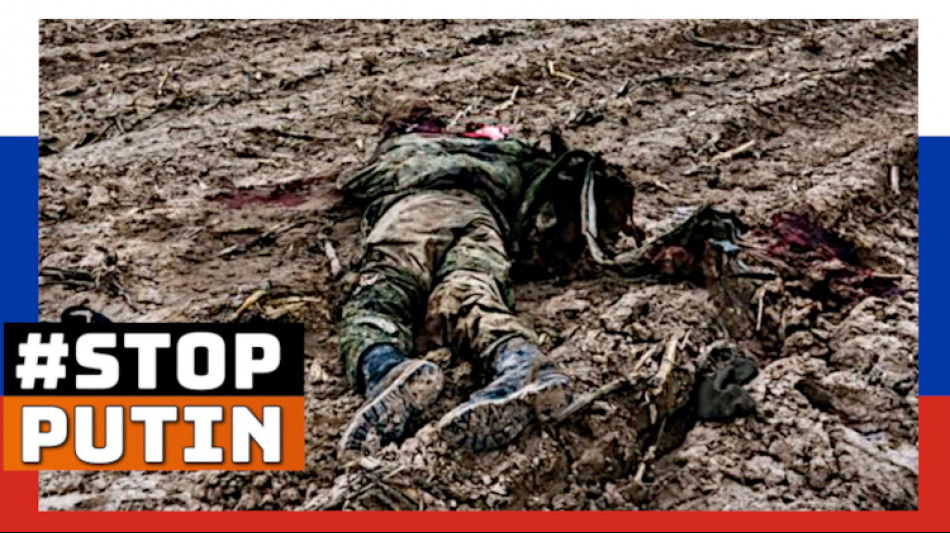
Ukraine: Russians die like fucking flies!
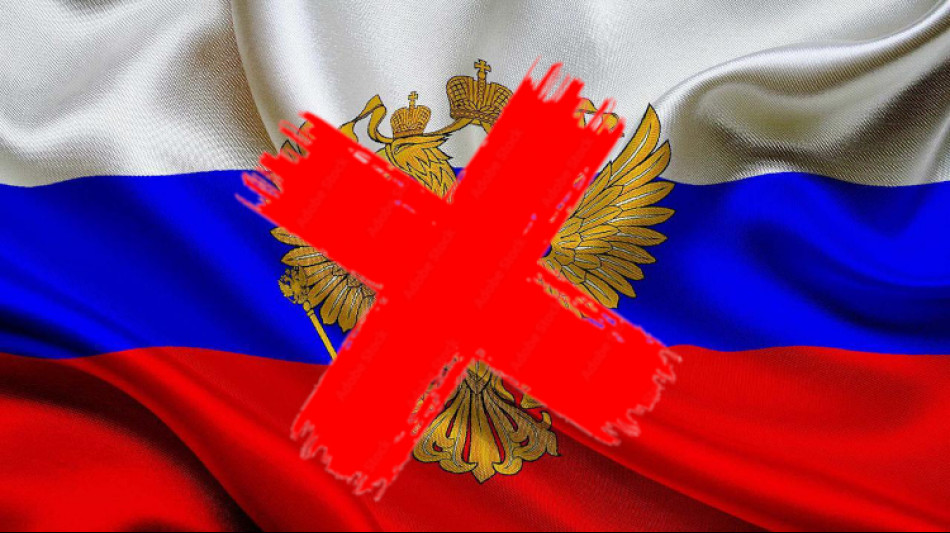
Antisocial Russian propaganda



